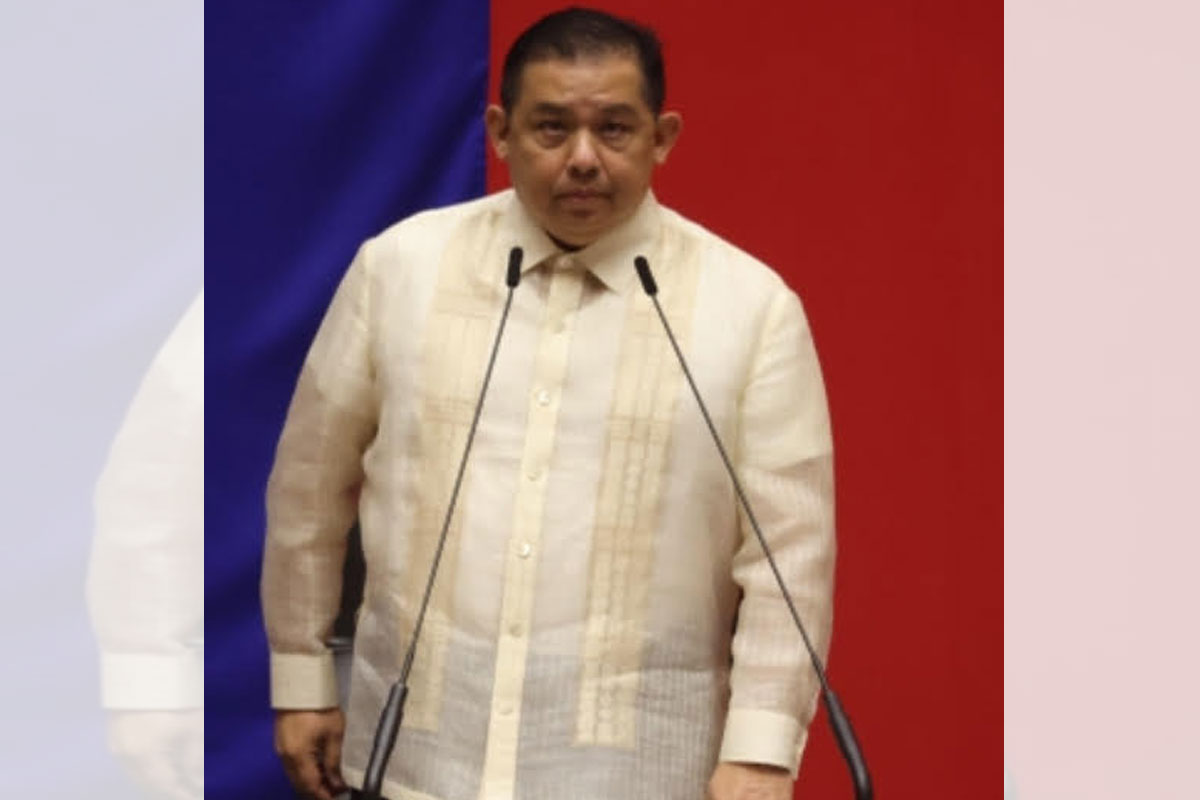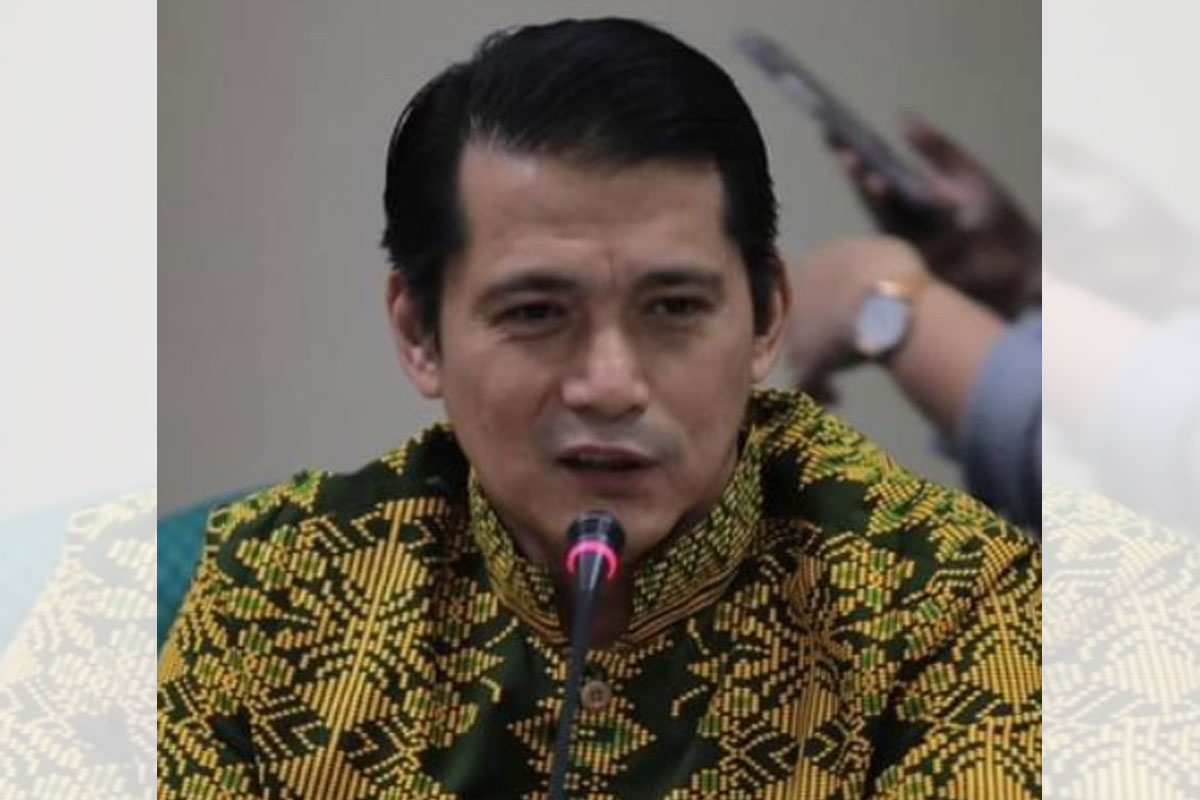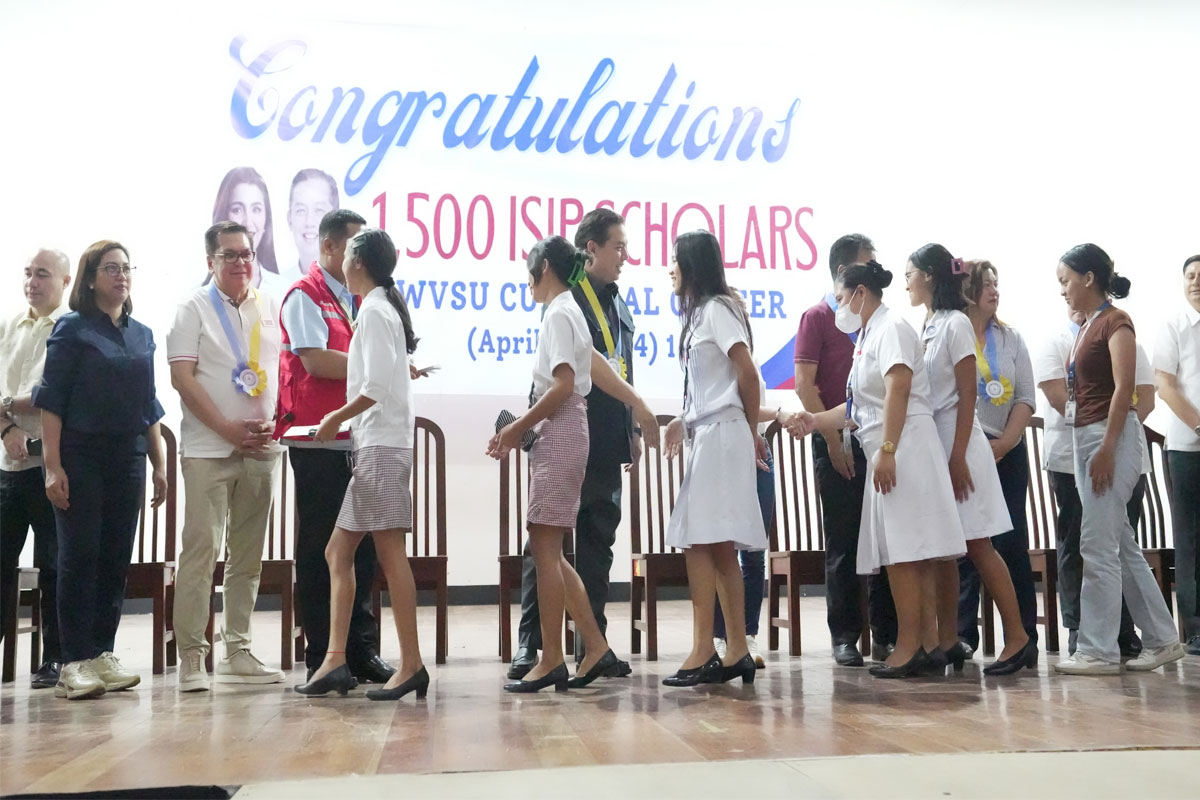 Speaker Martin G. Romualdez says the chamber is on track to approve the proposed P2.268-trillion “Agenda for Prosperity” 2023 national budget on the second and third and final reading this Wednesday before Congress goes on its first recess on Saturday.
Photo by VER NOVENO
Speaker Martin G. Romualdez says the chamber is on track to approve the proposed P2.268-trillion “Agenda for Prosperity” 2023 national budget on the second and third and final reading this Wednesday before Congress goes on its first recess on Saturday.
Photo by VER NOVENO
Speaker: House on track to OK 2023 nat’l budget
SPEAKER Martin G. Romualdez said the House of Representatives is on track to approve the proposed P2.268-trillion “Agenda for Prosperity” 2023 national budget on the second and third and final reading this Wednesday before Congress goes on its first recess on Saturday.
Romualdez added President Ferdinand “Bongbong” Marcos Jr. certified the budget bill as urgent Monday, paving the way for the spending measure’s early approval.
This as with an overwhelming 252 votes, the House of Representatives on Monday night approved on third and final reading a bill seeking to waive college entrance examination fees for qualified students.
House Bill (HB) 5001 is one of two proposed national laws the House passed, which also saw the chamber continue its budget deliberations during a marathon session presided over alternately by Deputy Speakers Aurelio Gonzales Jr. and Ralph Recto.
The other approved national bill is the proposed Ease of Paying Taxes Act.
Romualdez said the proposed Free College Entrance Examinations Act would benefit thousands of poor but bright students.
“This is our commitment to help promote lifelong learning opportunities and boost sustainable development in the countryside. We know the importance of quality education in changing the world,” Romualdez said.
HB 5001 is entitled, “An Act mandating private higher educational institutions to waive the entrance examination fees to underprivileged graduating high school students and high school graduates belonging to the top 10 percent of their graduating class.”
It is authored by 31 House members led by Parañaque Rep. Gus Tambunting and Baguio City Rep. Mark Go, who chairs the committee on higher and technical education, which endorsed the bill.
The measure defines a “private higher education institution” as one “not owned or controlled by the government or its instrumentalities and may be sectarian (usually non-stock, non-profit, duly incorporation, owned and operated by a religious organization) or non-sectarian (not affiliated to any religious organization, duly incorporated, owned and operated by private entities).”
On the other hand, “underprivileged graduating high school students and graduates” are those “entering college, whose parents have a combined income that falls below the poverty threshold, as determined by the National Economic and Development Authority and the National Household Targeting System of the Department of Social Welfare and Development.”
Aside from the income criterion and the requirement that graduates should belong to the top 10 percent of their class, an applicant must also be a natural-born Filipino citizen.
Under the approved measure, the Commission on Higher Education (CHED) is mandated to impose sanctions on violators of the proposed Free College Entrance Examinations Act.
The CHED, in coordination with the Department of Education and the Coordinating Council of Private Educational Associations of the Philippines, would also implement the rules and regulations within 90 days from the enactment of the proposed law.
Tambunting, whose HB No. 2850 became the basis for the draft Free College Entrance Examinations Act, said the measure seeks to carry out the constitutional command for the state to make education affordable and accessible to all by eradicating the “first hindrance,” which is the “prohibitive cost” of an entrance test.















